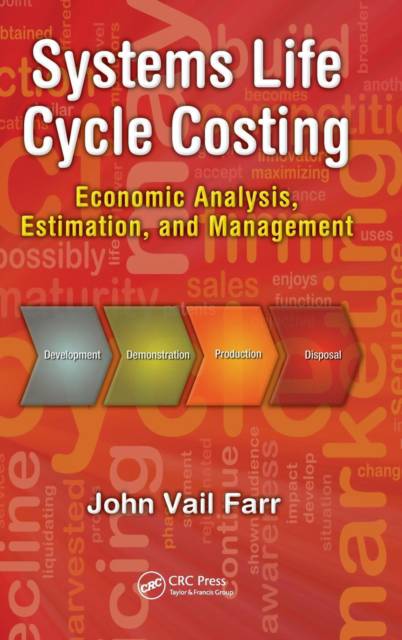
- Afhalen na 1 uur in een winkel met voorraad
- Gratis thuislevering in België vanaf € 30
- Ruim aanbod met 7 miljoen producten
- Afhalen na 1 uur in een winkel met voorraad
- Gratis thuislevering in België vanaf € 30
- Ruim aanbod met 7 miljoen producten
Omschrijving
Although technology and productivity has changed much of engineering, many topics are still taught in very similarly to how they were taught in the 70s. Using a new approach to engineering economics, Systems Life Cycle Costing: Economic Analysis, Estimation, and Management presents the material that a modern engineer must understand to work as a practicing engineer conducting economic analysis.
Organized around a product development process that provides a framework for the material, the book presents techniques such as engineering economics and simulation-based costing (SBC), with a focus on total life cycle understanding and perspective and introduces techniques for detailed analysis of modern complex systems. The author includes rules of thumb for estimation grouped with the methods, processes, and tools (MPTs) for conducting a detailed engineering buildup for costing. He presents the estimating costing of complex systems and software and then explores concepts such as design to cost (DTC), cost as an independent variable (CAIV), the role of commercial off-the-shelf technology, cost of quality, and the role of project management in LCC management.
No product or services are immune from cost, performance, schedule, quality, risks, and tradeoffs. Yet engineers spend most of their formal education focused on performance and most of their professional careers worrying about resources and schedule. Too often, the design stage becomes about the technical performance without considering the downstream costs that contribute to the tota1 life cycle costs (LCC) of a system. This text presents the methods, processes, and tools needed for the economic analysis, estimation, and management that bring these costs in line with the goals of pleasing the customer and staying within budget.
Specificaties
Betrokkenen
- Auteur(s):
- Uitgeverij:
Inhoud
- Aantal bladzijden:
- 316
- Taal:
- Engels
- Reeks:
Eigenschappen
- Productcode (EAN):
- 9781439828915
- Verschijningsdatum:
- 20/06/2011
- Uitvoering:
- Hardcover
- Formaat:
- Genaaid
- Afmetingen:
- 156 mm x 234 mm
- Gewicht:
- 621 g

Alleen bij Standaard Boekhandel
Beoordelingen
We publiceren alleen reviews die voldoen aan de voorwaarden voor reviews. Bekijk onze voorwaarden voor reviews.











